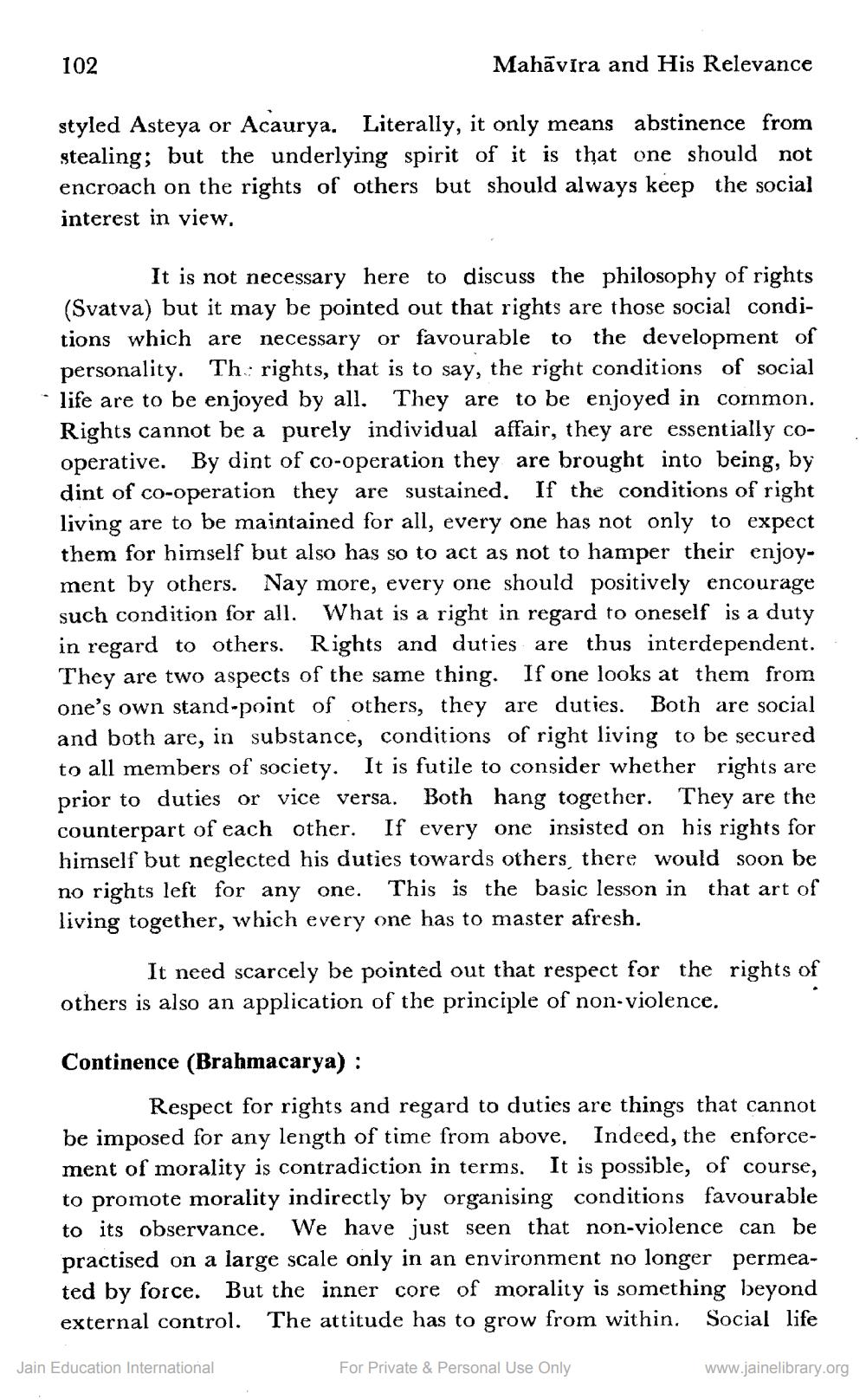________________
102
Mahāvīra and His Relevance
styled Asteya or Acaurya. Literally, it only means abstinence from stealing; but the underlying spirit of it is that one should not encroach on the rights of others but should always keep the social interest in view.
It is not necessary here to discuss the philosophy of rights (Svatva) but it may be pointed out that rights are those social conditions which are necessary or favourable to the development of
personality. Th: rights, that is to say, the right conditions of social - life are to be enjoyed by all. They are to be enjoyed in common.
Rights cannot be a purely individual affair, they are essentially cooperative. By dint of co-operation they are brought into being, by dint of co-operation they are sustained. If the conditions of right living are to be maintained for all, every one has not only to expect them for himself but also has so to act as not to hamper their enjoyment by others. Nay more, every one should positively encourage such condition for all. What is a right in regard to oneself is a duty in regard to others. Rights and duties are thus interdependent. They are two aspects of the same thing. If one looks at them from one's own stand-point of others, they are duties. Both are social and both are, in substance, conditions of right living to be secured to all members of society. It is futile to consider whether rights are prior to duties or vice versa. Both hang together. They are the counterpart of each other. If every one insisted on his rights for himself but neglected his duties towards others, there would soon be no rights left for any one. This is the basic lesson in that art of living together, which every one has to master afresh.
It need scarcely be pointed out that respect for the rights of others is also an application of the principle of non-violence.
Continence (Brahmacarya) :
Respect for rights and regard to duties are things that cannot be imposed for any length of time from above. Indeed, the enforcement of morality is contradiction in terms. It is possible, of course, to promote morality indirectly by organising conditions favourable to its observance. We have just seen that non-violence can be practised on a large scale only in an environment no longer permeated by force. But the inner core of morality is something beyond external control. The attitude has to grow from within. Social life
Jain Education International
For Private & Personal Use Only
www.jainelibrary.org




